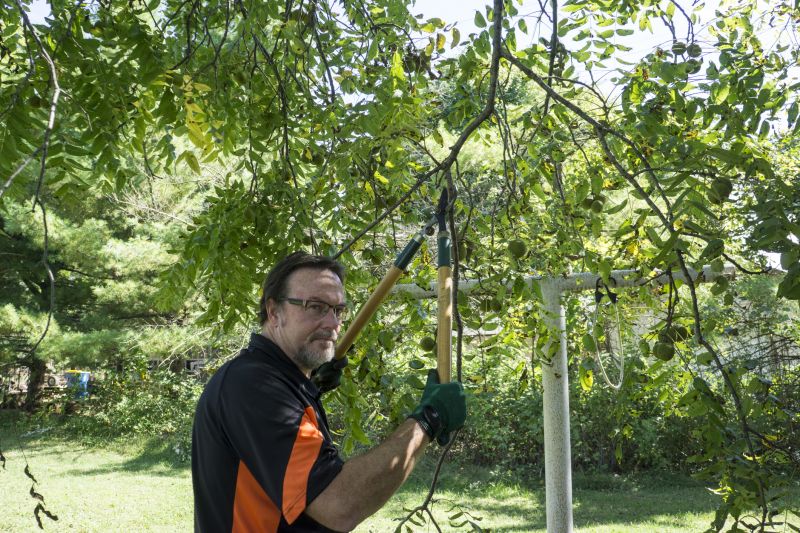Expert Picks For Tree Pruning And Debris Removal Supplies
Get insights into top-rated products that support safe and effective pruning, helping you maintain healthy and attractive trees.
 Proper tree care often involves pruning to maintain the health, safety, and aesthetics of trees. When selecting products for tree care prunings, it is essential to consider tools and equipment that facilitate safe and effective trimming, cutting, and disposal of branches. A comprehensive approach includes understanding the different types of pruning tools available, their specific uses, and how they can be integrated into regular tree maintenance routines.
Proper tree care often involves pruning to maintain the health, safety, and aesthetics of trees. When selecting products for tree care prunings, it is essential to consider tools and equipment that facilitate safe and effective trimming, cutting, and disposal of branches. A comprehensive approach includes understanding the different types of pruning tools available, their specific uses, and how they can be integrated into regular tree maintenance routines.
Top Overall Option
Multi-Function Tree Pruning Kit
A versatile pruning kit that includes a range of manual tools such as pruning shears, loppers, and a pruning saw, designed for various branch sizes. Its ergonomic handles and high-quality blades aim to provide comfort and efficient cutting performance, making it suitable for both occasional and regular tree maintenance tasks.
Types of Products For Tree Care Prunings
Hand Pruners
Compact and easy to use, ideal for trimming small branches and stems with precision.
Loppers
Long-handled tools designed for cutting thicker branches with increased leverage.
Pruning Saws
Suitable for cutting larger limbs and deadwood, available in manual and powered versions.
Pole Pruners
Extendable tools that allow reaching high branches without a ladder.
Chainsaw Attachments
Power tools that attach to chainsaws for efficient limb removal.
Tree Climbing Gear
Harnesses, spikes, and ropes designed for safe and effective tree access during pruning.
Debris Bags
Heavy-duty bags for collecting and transporting pruned branches and leaves.
Branch Chippers
Machines that convert branches into mulch, aiding in disposal and composting.
Safety Gloves
Protective gloves designed to prevent cuts and abrasions during pruning.
Safety Glasses
Eye protection to guard against flying debris and accidental cuts.
Protective Clothing
Durable clothing to shield skin from scratches and contact with sharp tools.
Garden Rakes
Tools for gathering pruned debris and leaves efficiently.
Disposal Containers
Containers specifically designed for organizing and transporting pruned branches.
Tree Maintenance Kits
Comprehensive sets including multiple tools for complete tree pruning and care.
Electric Pruners
Battery-powered tools that make quick work of small to medium branches.
Hydraulic Pruning Tools
Powered tools providing high leverage for heavy-duty pruning tasks.
Popular Choices
Widely used for clean cuts on small branches and stems.
Suitable for tougher, woody stems requiring more force.
Popular for reaching high branches safely from the ground.
Trusted for precision cuts on larger limbs.
Convenient for quick removal of thicker branches without cords.
Essential for collecting large amounts of pruned material.
Favored for safe and efficient high pruning tasks.
Designed for comfort during extended pruning sessions.
Popular for providing full-face protection during pruning.
Effective for reducing branch volume and creating mulch.
Commonly used for protection during demanding pruning jobs.
Preferred for gathering large quantities of debris quickly.
Popular for organizing pruned material for disposal or composting.
Favored for their ease of use and reach.
Trusted for their power and efficiency on thicker branches.
Popular for comprehensive tree pruning needs.
Pruning tools range from manual hand tools to powered equipment, each suited for different sizes and types of branches. Hand pruners and loppers are ideal for smaller branches, offering precision and control. For thicker limbs, pruning saws and pole pruners provide extended reach and increased cutting power. Additionally, safety gear such as gloves, eye protection, and protective clothing plays a vital role in ensuring safe operation during pruning activities.
Effective disposal of pruned branches is equally important. Products like yard waste bags, composting bins, and branch chippers can help manage debris efficiently. Proper disposal not only keeps the area tidy but also reduces potential hazards and promotes healthy growth for remaining trees. When choosing pruning products, factors such as blade quality, ergonomic design, and durability are key considerations to ensure long-term satisfaction and safety.
Investing in quality pruning products can enhance the overall tree care experience, making maintenance tasks more manageable and less time-consuming. Whether for professional arborists or homeowners with mature trees, selecting the right tools and accessories can support effective pruning practices and contribute to the health and appearance of trees over time.
Key Buying Considerations
- Compatibility with branch sizes and types to ensure effective cutting.
- Blade quality and sharpness for clean, precise cuts.
- Ergonomic design to reduce hand fatigue during extended use.
- Durability and material quality for long-lasting performance.
- Safety features such as lock mechanisms and protective guards.
- Reach and extension capabilities for high or hard-to-access branches.
- Ease of maintenance, including blade sharpening and tool cleaning.
- Weight of the tool to balance ease of handling and control.
- Power source options for powered tools, such as battery or corded models.
- Storage and portability features for convenience during transport.
- Compatibility with other tree care equipment and accessories.
- Cost and value considering the scope of your pruning needs.
- Availability of replacement parts and accessories.
- Brand reputation and customer reviews for reliability insights.
- Environmental considerations if applicable, though not a primary focus here.
